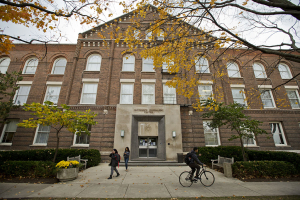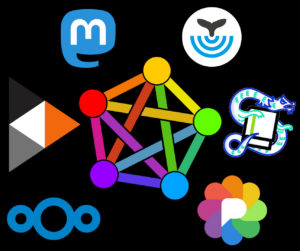
It was caused by publishers forgetting what their business is about.
They thought it was about advertising.
Here’s what I was taught in 1978, at Northwestern’s Medill School of Journalism. Organize and advocate a place, an industry, or a lifestyle. Sell ads against that audience at a premium price. Demonstrate to businesses how your paper reaches their target. Profit.
It’s this misunderstanding that led journalism astray when the Web was spun, a generation ago. I saw this coming and warned against it as loudly as I could. I argued with my teachers that the Internet would create more jobs for journalists over time.

Google and Facebook accelerated the change. Their ad networks let people buy highly specialized audiences for the same price as the whole network. On the Internet no one knows you’re a dog, and they don’t care if your page was written by one. Open AI is going to drop rates to zero across the media landscape, in video as well as print. There’s no stopping this.
The only way back is by realizing what I argued back in 1978.
Your readers aren’t your audience. They’re your community.
Media is community. Publishers give lip service to the idea that they’re serving a community, but they’re preaching to a church. They see their audience as passive.
Communities aren’t like that. In a community everyone talks to everyone else. A publisher’s job is to serve the community, not just by organizing and advocating for it, but by building its collective voice. That means you write about what’s happening in and to the community. But you also moderate and encourage interaction within the community. Your community site is a safe place for that discussion.

Open source means publishers now have free access to all the tools they need to build, to organize, to moderate, to create content, and to enable content within their community. All you must do is learn how to use the tools, on behalf of your intended audience. There are analogs for every kind of interaction.
This is what I was getting at in the first book I co-wrote, 32 years ago. Bulletin Board Systems for Business described the birth of this community movement. That movement was discarded thanks to the shiny objects of the Internet. But the movement abides. Build from the bottom up, serve your target in every way possible, gain its loyalty, so you can earn commissions from their interaction and fees for your services. This is how you rebuild journalism in the 21st century.









